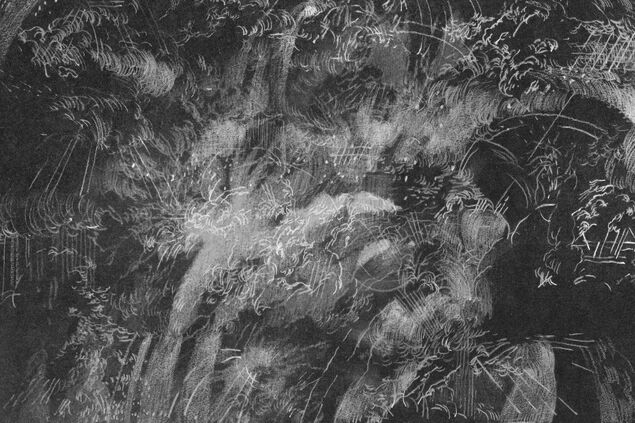Igor Stravinsky’s travelling circus concludes the “Music Unbound” series at
The Soldier’s Tale
- Date:
- 22 Dec 2025,
20:00–21:30
- Age restrictions
- 12+
Programme
Igor Stravinsky (1882–1971)
The Soldier’s Tale, 1918
The Tale of the Runaway Soldier and the Devil, played, read, and danced"—the full title accurately describes the synthetic nature of Igor Stravinsky’s masterpiece, usually known as The Soldier’s Tale. In 1918, at the end of the First World War, the composer joined battle with the operatic megalomania of the late nineteenth and early twentieth centuries, inventing a fundamentally new model for musical theatre: instead of choir and soloists, a narrator-protagonist; instead of a symphony orchestra, a chamber ensemble of just seven performers (a format that would become the touchstone for contemporary music); instead of lavish scenography, the aesthetics of street performance or a travelling circus.
Performed by
Fyodor Beznosikov conductor
Sergei Epishchev narrator
Boulez Ensemble
Yaroslav Timofeev concert host

Illustration: Anastasia Filippova
Together with librettist Charles Ramuz, the composer gives a modernist façade to a subject taken from Alexander Afanasyev’s nineteenth-century collection of Russian fairy tales. The creative palette chosen by Stravinsky was well suited to this story of a broken reality, the impossibility of returning to one’s homeland, and the irretrievable loss of a former way of life. But the modernist take leaves apparent the romantic leitmotif of nostalgia, mal du pays, and the pain of homeless wandering. Stravinsky aspires to universal artistic expression, suited for any audience and any context.
In The Soldier’s Tale, Russian folk literature acquires global resonance. “My original idea was to transpose the period and style of our play to 1918, to endow it with several nationalities and none,” the composer said years later. And yet, in 1962, visiting the USSR for the first and only time, Stravinsky remarked: “I have spoken Russian all my life, I think in Russian. Perhaps this is not immediately apparent in my music, but it is latent there; a part of its hidden nature.”
Fyodor Beznosikov (b. 1993, Moscow) is a conductor and violinist. He graduated in 2017 from the Moscow Conservatory, where he studied violin under Vladimir Ivanov. He is currently studying opera and symphonic conducting under Felix Korobov. He has worked since 2023 as conductor at the Moscow Academic Musical Theatre. He also teaches violin at the Moscow Conservatory. Since 2024, he has conducted performances by the Russian National Orchestra. Fyodor Beznosikov was among the winners at the Art Theatre Prizes in 2024. He was recently appointed musical director at Moscow’s New Opera Theatre.
Sergei Epishev (born 1979, Tashkent) is a theatre and film actor. He graduated from the Ilkhom Theatre School of Dramatic Arts (1997) and the Boris Shchukin Theatre Institute (2001). From 2001 to 2020, he performed in several roles at the Vakhtangov Theatre in Saint Petersburg. He has appeared in almost fifty films and worked with many directors, including Yuri Lyubimov, Rimas Tuminas, Yuri Butusov, Konstantin Bogomolov, Kirill Serebrennikov, Maxim Didenko, Silviu Purcărate, Grzegorz Jarzyna, and others.

